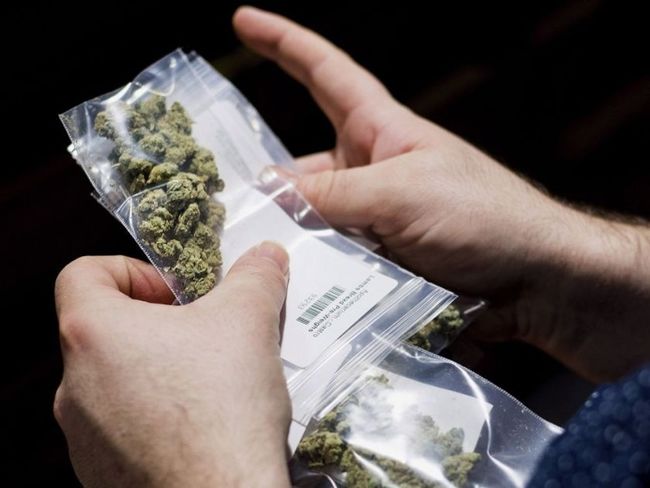Town council tackles cannabis regulations: AB

Whitecourt Town council discussed land-use regulations regarding cannabis legalization during its policies and priorities meeting on May 22.
Council voted 5-1 to proceed with the recommendations to add the word “cannabis” for Retail – General and Retail – Hilltop Commercial in the land-use bylaw. The Town will also be hosting a public hearing for these specific changes.
The meeting dealt with cannabis regulations for retail, production facilities and medical offices. Council will address public consumption at a later date.
Retail
Once cannabis becomes legal in Canada, the Alberta Gaming and Liquor Commission will manage cannabis distribution and be responsible for licensing, oversight and compliance for private cannabis retailers.
Town administration recommended that cannabis retailers in Whtiecourt be treated in the same manner as liquor and tobacco stores, which do not require additional setbacks, special fees or segregation from other retail activities.
“Whitecourt has always taken the stance that it’s a retail product and it does have other governing factors,” said Wendy Grimstad-Davidson, manager of planning and development.
The province requires setbacks for cannabis retailers to be 100 metres away from areas such as schools and health care facilities. Municipalities cannot decrease these setbacks but can increase them at their discretion.
Deputy Mayor Tom Pickard initiated a discussion regarding the setbacks on behalf of Mayor Maryann Chichak, who did not attend the meeting. Pickard also said the 100-metre setback was adequate and did not require adjusting.
Coun. Matt Connell agreed with Pickard and added that expanding the setbacks too much could cause a conflict with the federal government since municipalities don’t have the authority to keep cannabis illegal.
“We could run into trouble going higher,” Connell said. “It turns into a bit of a rodeo.”
Coun. Bill McAree echoed the concerns of Connell regarding setbacks.
“If we try to tweak them, we can be challenged in court and then we’re spending taxpayer dollars on something that’s probably untenable,” McAree said. “Let’s just go with it.”
Coun. Ray Hilts, who voted against making the recommendation, stated that a 100-metre setback was “weak” and noted the high number of liquor stores under those same regulations.
“I don’t really want to be known as the dope and booze capital of Alberta,” Hilts said. “I don’t want that in the community and I don’t want that to be our reputation because we have very little control over it and I would like to see us be a little more creative with licensing.”
Coun. Derek Schlosser explained that many cannabis retailers would go out of business after an initial period and that the free market would regulate itself.
“This isn’t a moralistic issue,” Schlosser said. “If people want to consume cannabis on their own recreational time, that’s their business.”
He added that the number of liquor stores has no correlation with public consumption rates and expected the same with cannabis retailers.
“I don’t see people right now that are buying liquor in a liquor store, then going down to Rotary Park and opening up a 26 (ounce) of vodka and sitting their pounding and making fools of themselves,” Schlosser said. “If they do, then they get busted, just like there are rules to everything.”
Production facilities
The local land-use bylaw would define cannabis production facilities as a green house.
Town administration noted it would be unlikely that developers would choose to build a production facility within town borders and would go with a rural location instead. It also noted that cannabis production facilities produce a large around of waste and would represent a challenge for the Whitecourt Landfill.
Coun. Paul Chauvet said that many of these facilities would be too large to be located within Whitecourt.
“It’s highly unlikely that we will need to make any changes,” Chauvet said. “I agree with administration’s assessment.”
McAree also raised concerns over potential smell. Pickard replied that many cannabis production facilities have methods to mitigate smells.
Medical cannabis offices
Medical cannabis will continue to be controlled by Health Canada. It is currently only sold by mail, phone or online, while physical locations only serve to provide patients with prescriptions.
Town administration stated that medical cannabis offices in Whitecourt would be treated the same as other medical facilities.
Schlosser stated that the Town could prohibit medical cannabis offices from being located too close to regular cannabis retailers. He added that this would prevent congestion in those areas but might also “open up a can of worms.”
“We don’t have a large retail area downtown,” Schlosser said. “If we start prescribing that way, it may be difficult to have anything downtown of that nature.”
Compass Cannabis Clinic, which connects patients with doctors who are able to prescribe medical cannabis and has licensed producers mail out the product, is expected to open a location in Whitecourt sometime this year.
420 Intel is Your Source for Marijuana News
420 Intel Canada is your leading news source for the Canadian cannabis industry. Get the latest updates on Canadian cannabis stocks and developments on how Canada continues to be a major player in the worldwide recreational and medical cannabis industry.
420 Intel Canada is the Canadian Industry news outlet that will keep you updated on how these Canadian developments in recreational and medical marijuana will impact the country and the world. Our commitment is to bring you the most important cannabis news stories from across Canada every day of the week.
Marijuana industry news is a constant endeavor with new developments each day. For marijuana news across the True North, 420 Intel Canada promises to bring you quality, Canadian, cannabis industry news.
You can get 420 Intel news delivered directly to your inbox by signing up for our daily marijuana news, ensuring you’re always kept up to date on the ever-changing cannabis industry. To stay even better informed about marijuana legalization news follow us on Twitter, Facebook and LinkedIn.




